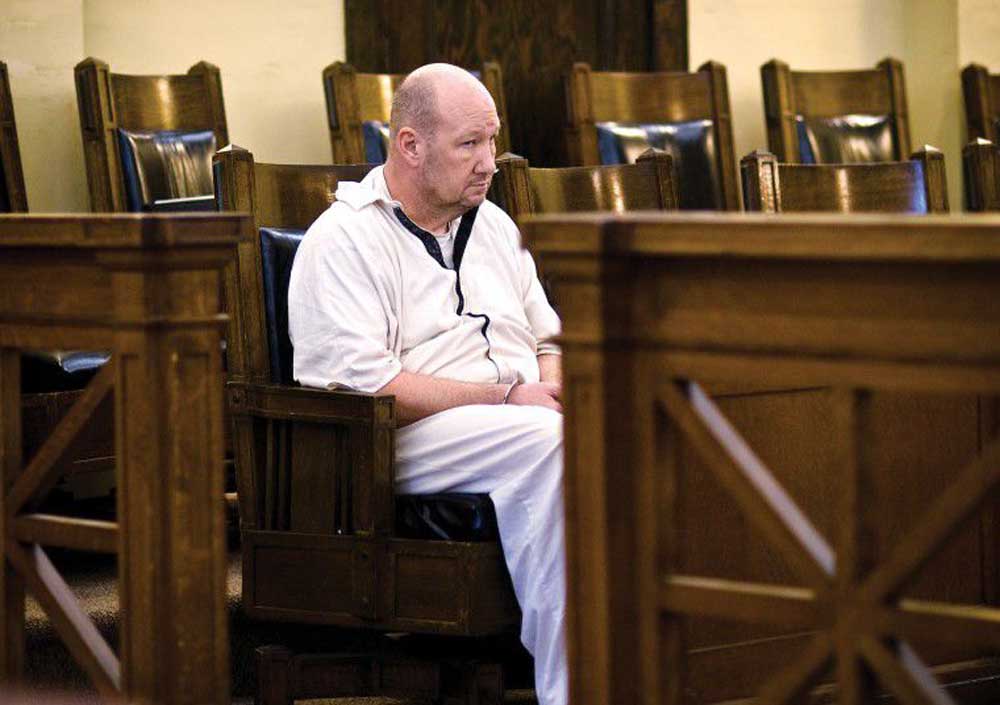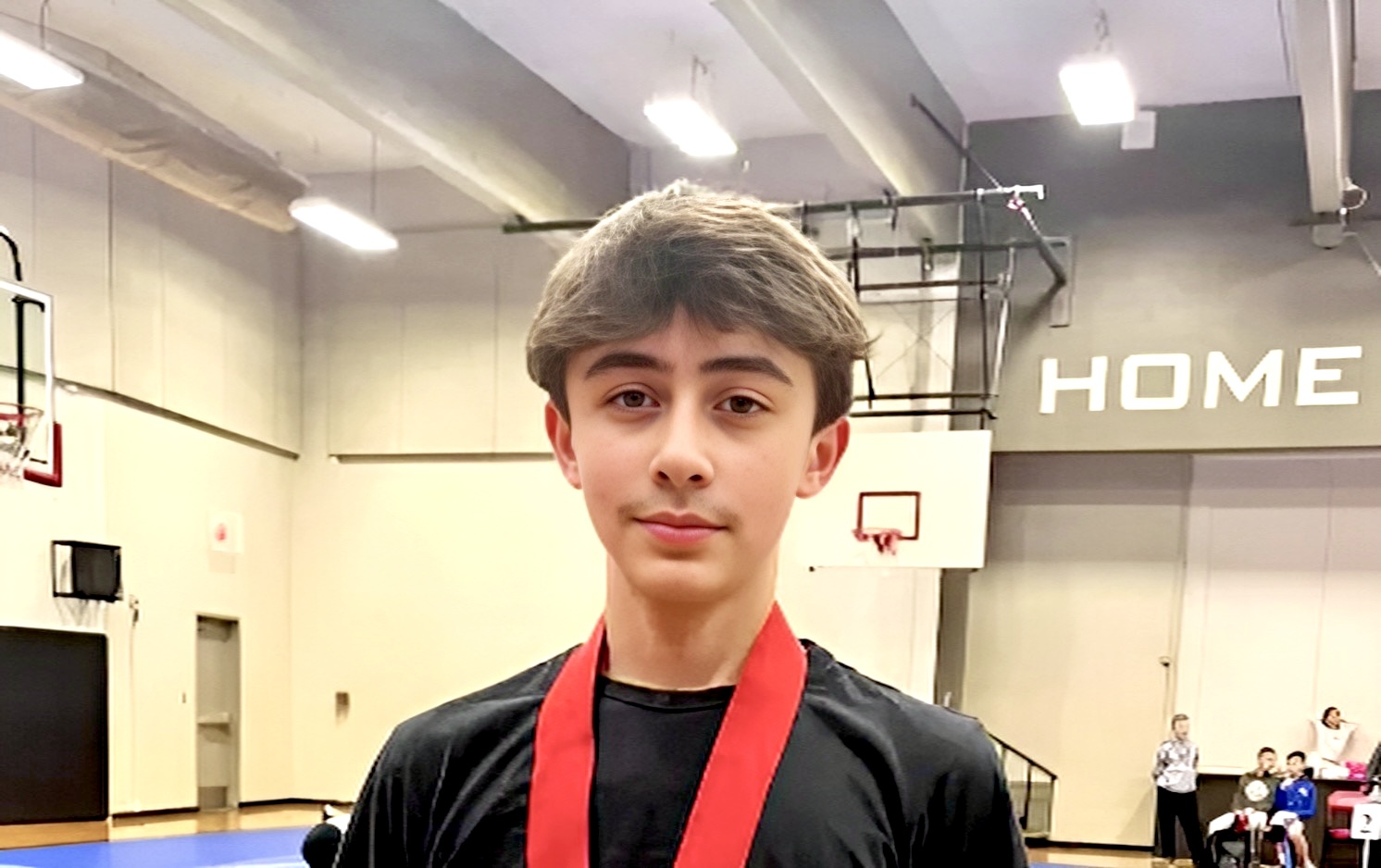Brush to remain behind bars: Murder’s final state appeal has failed
Published 4:45 pm Wednesday, January 9, 2019

- Brian Brush, pictured at an early stage in lengthy murder proceedings.
OLYMPIA — Murderer Brian Keith Brush, 56, tried to appeal his case a second time. And once again, the state’s highest courts said Brush, also known as Inmate No. 337561, should stay right where he is — serving an 88-year sentence at the Washington State Penitentiary in Walla Walla.
On Jan. 9. Washington Supreme Court justices said they will not hear Brush’s most recent appeal, which the Court of Appeals rejected in September 2018.
Brush’s remaining options are unlikely to get much traction, according to Pacific County Prosecutor Mark McClain.
“This ruling from the Supreme Court really does make it clear that this case is pretty much over,” McClain said.
Aggravating factors
The new announcement caps off eight years of post-conviction legal maneuvering. Since being convicted of first-degree premeditated murder with aggravating factors in 2011, Brush has repeatedly argued that his exceptional 1,060-month sentence was too harsh a punishment for publicly shooting his former girlfriend Lisa Bonney multiple times in September 2009.
When Brush was sentenced in 2012, Judge Michael Sullivan took advantage of a state law that allows extra prison time for certain types of crimes, including those involving aggravated domestic violence.
Brush appealed his conviction and sentence. Eventually, the Supreme Court upheld his conviction, but overturned his sentence. It ordered the county to either give him a shorter sentence or hold a trial to determine if the exceptional sentence was justified.
In accordance with the wishes of Bonney’s family, McClain took it to trial. In November 2016, Sullivan again ruled that the sentence was fair.
Psychological abuse
Because the court issued a new verdict in 2016, Brush was able to start the appeals process all over again. The second appeal focused exclusively on his sentence, and used different arguments than the first appeal.
To uphold the exceptional sentence, McClain had to prove Bonney’s murder was part of an “ongoing pattern of psychological abuse” over “a prolonged period of time.” Brush argued that the law is too broad and too vague to be constitutional.
According to Brush, who had thrown and broken Bonney’s belongings, locked her and her daughter out of their home, attacked her car with a hammer, stalked her and tried to blackmail her over a period of seven weeks, the law did not provide a meaningful definition of “psychological abuse,” and therefore couldn’t be used as an aggravating factor. He also argued that since the law didn’t specifically define a “prolonged period of time,” there was no way to prove that seven weeks was “prolonged.”
“He essentially argued psychological abuse can’t be defined,” McClain said.
‘Unpersuasive’
The Appeals Court judges called Brush’s arguments “unpersuasive.” In their September 2018 decision, they said the law can’t possibly account for every contingency, so laws only need to be clear enough that people with typical judgement and intelligence can understand if they’re relevant to a situation.
“… statutes that define criminal offenses must be adequately definite to allow ordinary people to understand what conduct is prohibited,” the judges wrote. In other words, the judges said any normal person would understand it was wrong for Brush to spend weeks terrorizing his ex, so the law didn’t need to say his specific behavior was psychological abuse.
Brush also argued his sentence was “clearly excessive.” Again, the judges said, the fairness of a sentence depends partly on whether it would “shock the conscience” of a reasonable person.
Brush’s sentence was tough, they said, but certainly not shocking.
“Brush inflicted psychological abuse on Bonney, and the court found that he acted with deliberate cruelty…” the judges wrote.
Jailhouse lawyering
Brush then asked the Supreme Court to hear his case. But the state’s highest court gets hundreds of requests each year, and chooses to review only a few cases — usually cases where legal experts disagree about how state law applies. On Jan. 8, five justices discussed Brush’s case and unanimously agreed they weren’t interested in hearing it.
Brush has exhausted all of his options for appeals, but that doesn’t necessarily mean he’s done. The next step would be to file a personal restraint petition. If he were to do that, Brush would be playing very long odds. The state constitution guarantees citizens the right to appeal criminal cases, so convicts can use public defenders to file them at state expense. That is not true for so-called PRPs. Brush would either have to pay an attorney out of pocket, or become a “jailhouse lawyer” and file his own petition. Furthermore, PRPs are rarely successful.
“The PRP says essentially, ‘You’re holding me illegally.’” McClain said. “For someone to prove they’re being held illegally is very hard to do.” That is likely to be especially true for someone who committed a murder in front of multiple witnesses.
Bittersweet
If Brush unsuccessfully filed a PRP, he could then try to appeal his case in the federal court system, but most prisoners don’t get far with that tactic.
“I don’t think that will happen and it’s super unlikely that he will be successful getting there,” McClain said.
The prosecutor expressed his hope that the end of Brush’s state appeals process will provide some measure of comfort for Bonney’s daughters, who have lived for a decade with the possibility of their mother’s killer being set free. But he said, he was saddened that the news came too late for Bonney’s father, Gene Klingler, a long-time school bus driver who passed away in October 2018 at the age of 79.
“I only wish I had been able to tell [Klingler] before he passed away last year,” McClain said.





